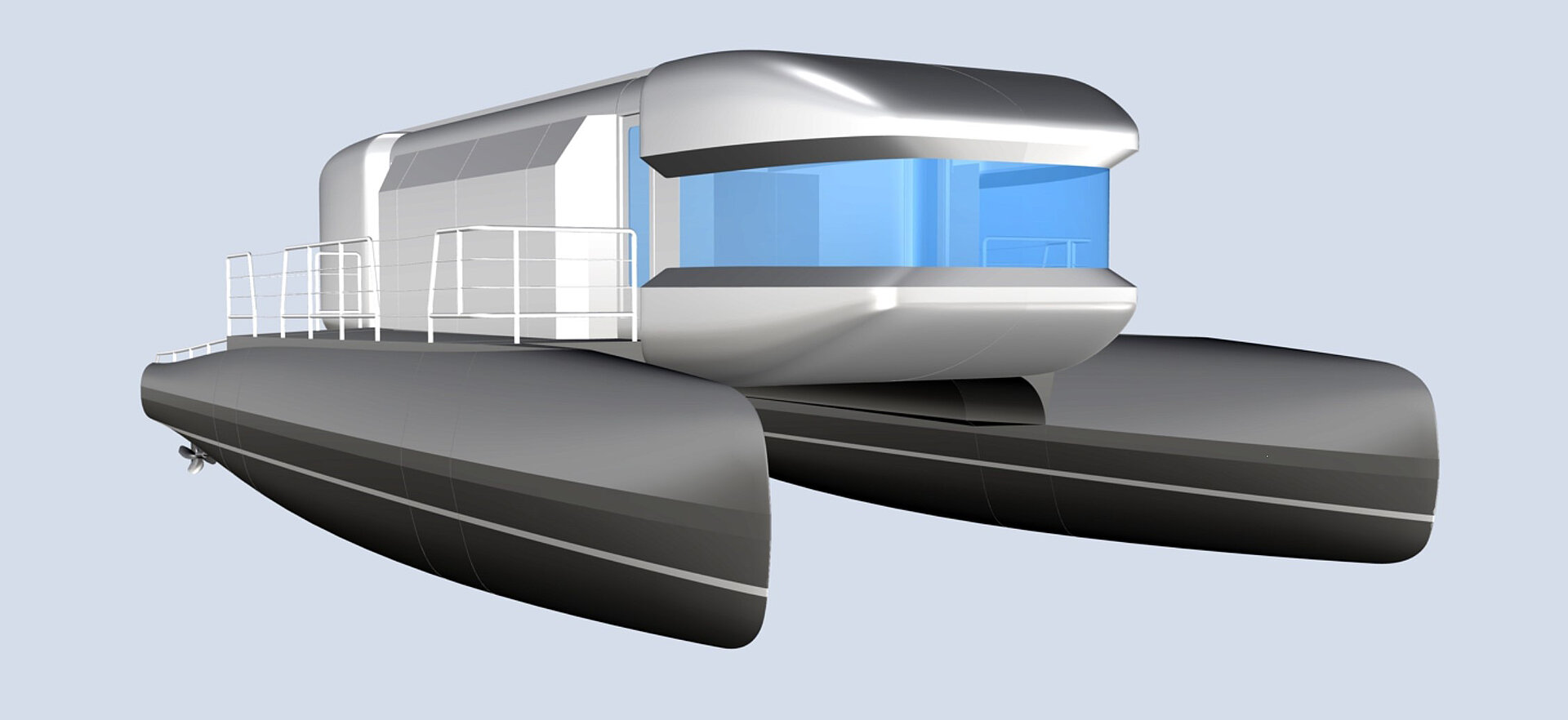
Torqeedo to participate in autonomous navigation project

Rendering of the 15m-long test platform
(Source: Torqeedo)
Germany’s Torqeedo GmbH has announced that it is to participate in the ‘Smart & Green Ship’ research project launched recently by the University of Duisberg-Essen (UDE) and the Development Centre for Ship Technology and Transport Systems e. V. (DST). The aim of the project is to research various combinations of automation and emission-free drive systems to advance autonomous drive systems in inland shipping.
Torqeedo will provide four Deep Blue Battery 80s and twin Deep Blue 50i engines for the 15m-long test platform being developed by UDI and DST. This is now being built at the Feller Yachting shipyard in North Rhine-Westphalia.
The test platform will comprise of an inland vessel with a catamaran hull capable of transporting people and cargo. The two floats of the vessel, which keep the hull above water, will have solar panels to keep the vessel operational without any other source of energy when it is docked in harbour. The electric drive system, housed in the stern, will consist of two 50-kW Deep Blue motors powered by the four batteries.
Fabian Bez, Torqeedo CEO, said: “We at Torqeedo are pleased to be involved in the development of the ‘Smart Green Ship’ and thus support the UDE and the DST in developing a future-oriented solution for the shortage of skilled workers and promoting the use of environmentally friendly propulsion solutions in inland navigation. With our holistic approach, we provide individual system solutions to electrify marine fleets.”
Vessel design specialist Uwe Feller of Feller Yachting commented: “The modular design of the propulsion system and the hull makes it easy to retrofit additional green energy sources in the future, such as a fuel cell or a generator powered by sustainable liquid fuels. The ship will also be equipped with all the necessary technical components to enable completely autonomous cruising – including lock passages as well as mooring and casting-off manoeuvres.”
Many experts believe that autonomous vessels will be the first vehicles on the planet to achieve Level-5, or full autonomy, as autonomous vessels face different challenges from self-driving cars. Boats and ships on inland waterways tend to travel at relatively slow speeds, and there is less vehicular and human traffic to contend with. In addition, many inland vessels travel a fairly fixed route, which can make navigation easier than on land.
Feller Yachting is expected to hand over the ‘Smart & Green Ship’ to the project partners in September 2024 when it will enter into a one-year test phase on the Dortmund-Ems Canal.
